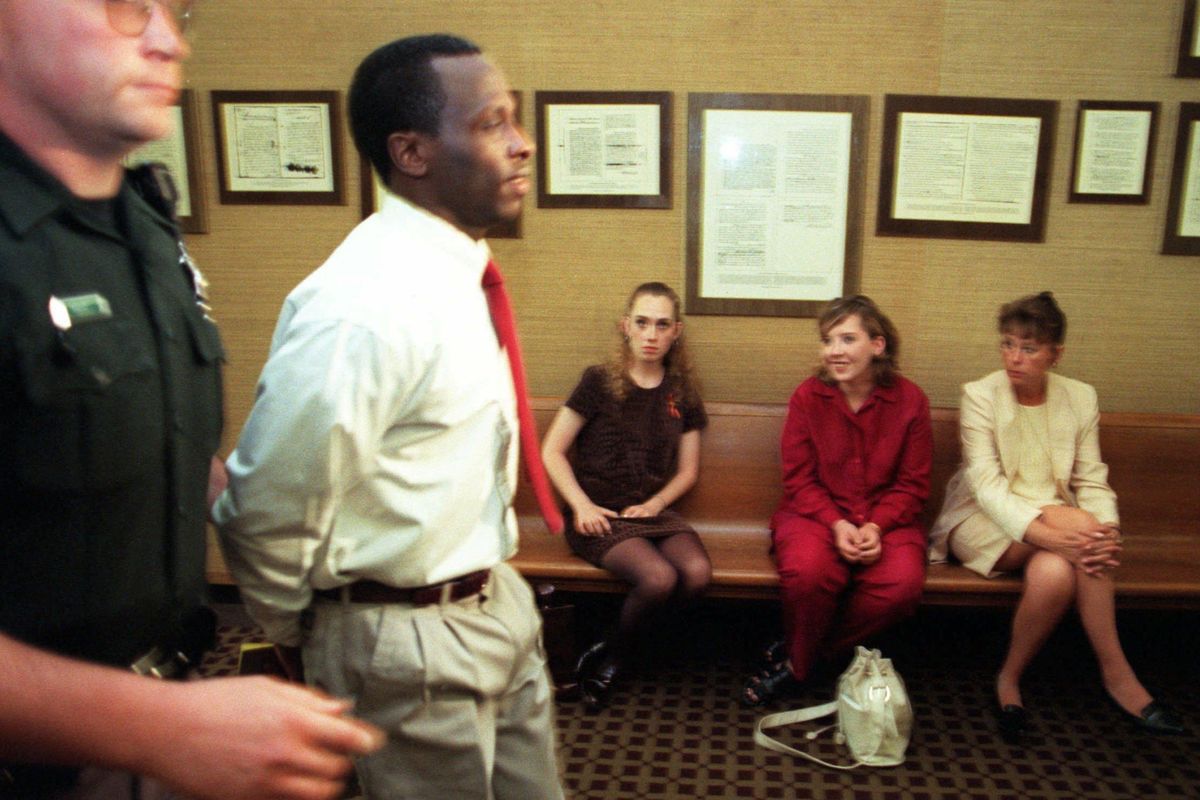Death penalty ruling anguishes Spokane Valley mother who lost daughter in 1996 attacks

Sherry Shaver felt some solace on the day in 1997 when a jury recommended the death penalty for the man who killed her daughter in Spokane Valley.
But the ensuing 20 years brought more grief and frustration, as Shaver watched the killer, Dwayne Woods, exhaust his legal appeals and repeatedly stave off his execution. She was further anguished by Gov. Jay Inslee’s decision to halt executions in 2014. And in January 2017, Woods, one of nine people on death row at the time, died of cardiac arrest at a hospital in Richland, out of Shaver’s view.
“I wanted to be the last person he saw,” she said. “I wanted him to look me in the eyes before he died. And now I won’t get that.”
Shaver said a final blow came Thursday when the Washington Supreme Court struck down the state’s death penalty. She had held out hope that the next governor might reverse Inslee’s moratorium on executions.
Woods’ sentencing, it turns out, played a role in the court’s decision. As a black man, he had become part of a troubling statistic in Washington’s criminal justice system.
The ruling cites a 2014 University of Washington study which found that jurors in the state were “more than four times more likely to impose a death sentence if the defendant is black.” The decision stemmed from another 1996 case in which Allen Eugene Gregory was sentenced to die for the rape and murder of a woman in Tacoma.
Woods was convicted in June 1997 on two counts of aggravated first-degree murder for the killings of Telisha Shaver, 22, and a friend, Jade Moore, 18. Presented with DNA evidence, the nine-woman, three-man jury also determined that Woods raped Moore and beat and stabbed Telisha Shaver’s sister, Venus Shaver, who was 20. All three women were clubbed in the head with an aluminum baseball bat. Only Venus Shaver survived.
The attacks happened in the early hours of April 27, 1996, in a mobile home near Sprague Avenue where Venus Shaver and Moore were living. Venus Shaver testified that Woods, an acquaintance, came over after 3 a.m. and grew angry because Moore was not awake. Venus Shaver said Woods attacked her when she refused to have sex with him.
Sherry Shaver testified that when she arrived that morning, she spotted Woods leaving through another door of the trailer. “I looked him in the eyes,” she told the jury.
Moore and Telisha Shaver died the day after the attacks at a Spokane hospital. Venus Shaver spent 10 days in the hospital and eventually recovered. She later married and had children.
Three days after his conviction, Woods stunned the courtroom by asking to be sentenced to death. The jury granted his wish the next day. While incarcerated in the state penitentiary in Walla Walla, however, he insisted he was innocent and filed several appeals, most recently in June 2016.
Sherry Shaver said she supported the death penalty even before her daughters were brutalized. She said she was concerned about racial disparities in how the punishment was applied, but she dismissed concerns that lethal injection is inhumane and about the large public expense of adjudicating death-row cases.
“I would like to ask people this one question: If you walked in on someone hurting or killing your children, wouldn’t you try to kill that person on the spot?” she said. “And I don’t think there’s a mother or a father alive who wouldn’t say, ‘You bet.’ ”